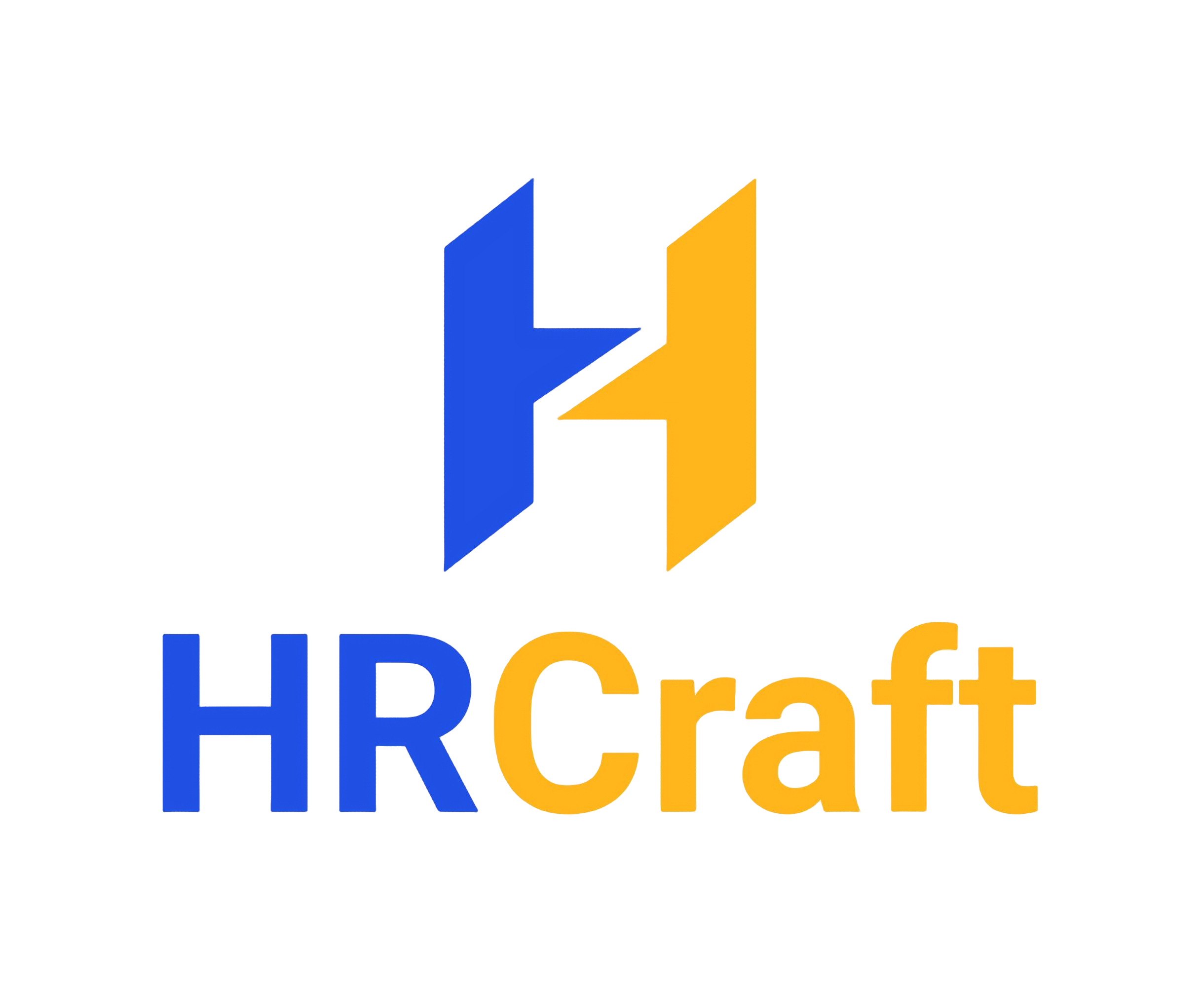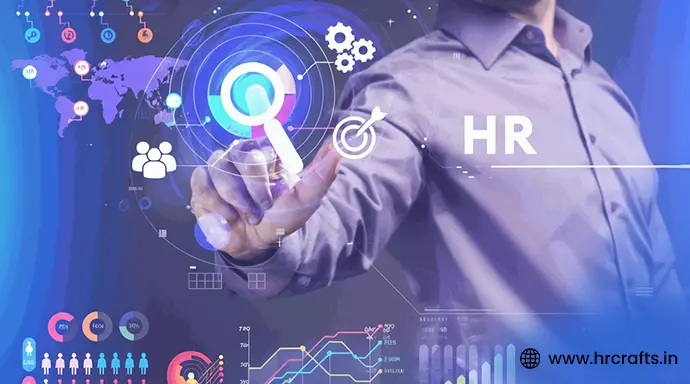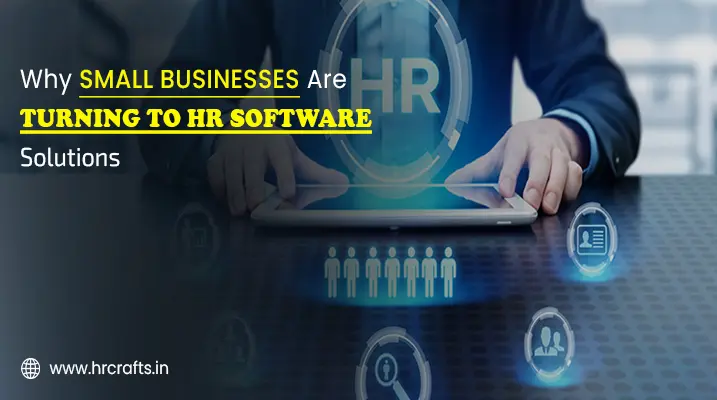The Future of HR Software: Trends to Watch in 2025
The world of HR software is rapidly evolving, with new technological advancements shaping the way businesses manage their workforce. As we step into 2025, HR management is witnessing a transformation powered by artificial intelligence, automation, and data-driven insights. Companies leveraging cutting-edge HR software solutions such as HRCraft are staying ahead of the curve by streamlining operations, improving employee engagement, and enhancing decision-making. Let’s explore the top trends that will define the future of HR software in 2025.
Artificial Intelligence (AI) and Machine Learning in HR
AI and machine learning are revolutionizing HR management by automating tedious tasks and providing predictive analytics. From AI-driven recruitment to personalized employee experiences, HR software now leverages intelligent algorithms to:
- Enhance recruitment processes by scanning resumes, identifying top candidates, and predicting cultural fit.
- Automate employee onboarding, reducing paperwork and ensuring a seamless experience.
- Improve employee engagement through AI-powered chatbots that address concerns in real time.
- Enable predictive analytics to forecast workforce trends, reducing turnover rates.
Cloud-Based HR Solutions for Scalability
With remote and hybrid work becoming the new norm, cloud-based HR software is essential for businesses to remain agile. Cloud technology allows organizations to:
- Access HR data from anywhere, ensuring seamless remote workforce management.
- Improve collaboration among HR teams, managers, and employees.
- Secure sensitive HR data with advanced encryption and multi-factor authentication.
- Reduce infrastructure costs while providing a scalable solution adaptable to business growth.
Employee Experience and Well-Being Initiatives
Organizations are prioritizing employee experience more than ever. HR software solutions are incorporating features to:
- Monitor employee well-being through sentiment analysis and pulse surveys.
- Provide mental health resources and personalized support programs.
- Use gamification techniques to enhance engagement and motivation.
- Offer AI-powered career development tools that recommend learning paths and upskilling opportunities.
Integration of HR Software with Other Business Tools
Seamless integration between HR software solutions and other enterprise tools is critical for productivity. In 2025, we will see:
- HR software syncing with payroll systems to automate salary processing.
- Integration with project management tools like Trello and Asana to streamline workforce planning.
- Connectivity with communication platforms such as Slack and Microsoft Teams to improve HR accessibility.
- API-driven customization to adapt HR software based on specific business needs.
Data Security and Compliance Enhancements
With increasing concerns over data breaches, HR management software must comply with global data protection regulations. Key trends include:
- Implementation of blockchain technology for tamper-proof HR records.
- Adoption of GDPR and CCPA-compliant HR systems to protect employee data privacy.
- Use of biometric authentication for secure employee access to HR portals.
- Automated compliance tracking to ensure adherence to labor laws and policies.
The Rise of HR Analytics and Data-Driven Decision-Making
HR analytics is transforming the way companies make workforce decisions. Advanced HR software solutions in 2025 will offer:
- Real-time workforce analytics to track employee performance and productivity.
- AI-driven insights to enhance diversity, equity, and inclusion (DEI) initiatives.
- Attrition prediction models to identify employees at risk of leaving and implement retention strategies.
- Customizable dashboards for HR leaders to gain a 360-degree view of workforce trends.
Remote Work Optimization and Digital Workspaces
The shift to remote work has led to the rise of HR software designed to support distributed teams. Innovations include:
- Virtual onboarding tools that ensure new hires feel connected from day one.
- Remote performance management systems that track goals and key performance indicators (KPIs).
- AI-powered collaboration assistants that schedule meetings, analyze productivity, and provide recommendations.
- Employee self-service portals to manage HR requests, benefits, and training from anywhere.
Customization and Personalization in HR Software
Gone are the days of one-size-fits-all HR solutions. Companies now demand:
- Modular HR platforms that allow businesses to choose specific functionalities.
- Personalized dashboards and workflows that adapt to different HR roles and industry needs.
- Adaptive learning experiences that tailor training programs based on employee skills and career goals.
- User-friendly interfaces designed for intuitive navigation and increased adoption rates.
Ethical AI and Bias-Free HR Tech
As AI continues to influence HR processes, ethical considerations are more critical than ever. Future HR software will:
- Ensure bias-free recruitment algorithms to promote fair hiring practices.
- Implement transparent AI decision-making models for HR analytics.
- Provide auditable AI-driven processes to maintain compliance with employment laws.
- Enhance DEI initiatives by using AI to monitor and improve workplace diversity metrics.
Mobile-First HR Solutions for On-the-Go Management
With the increasing reliance on smartphones, HR software solutions are becoming mobile-friendly. Key innovations include:
- Mobile apps with full HR functionalities, allowing employees to access HR services anytime.
- AI-driven voice assistants for quick HR queries and support.
- Push notifications for HR updates, such as policy changes, performance reviews, and benefits enrollment.
- Geo-fencing technology to manage attendance tracking for field employees.
Conclusion
The future of HR software is driven by AI, automation, and a focus on employee experience. Companies adopting HR software solutions like HRCraft are positioning themselves for success in an increasingly digital and data-driven world. By staying ahead of these trends, businesses can improve efficiency, foster employee engagement, and ensure compliance with evolving workforce regulations.
(FAQs)
-
What is HR software?
HR software is a digital solution that automates and manages various HR tasks such as payroll, recruitment, performance management, and compliance.
-
Why is AI important in HR software?
AI enhances HR software by automating repetitive tasks, improving recruitment accuracy, predicting workforce trends, and boosting employee engagement.
-
How does cloud-based HR software benefit businesses?
Cloud-based HR software allows remote access, scalability, improved collaboration, and secure data storage without high infrastructure costs.
-
What are the key features to look for in HR software?
Key features include payroll integration, AI-driven analytics, compliance tracking, remote work support, and mobile accessibility.
-
Is HR software secure?
Yes, modern HR software implements encryption, biometric authentication, and compliance with data protection laws like GDPR and CCPA to ensure security.
-
Can HR software improve employee experience?
Absolutely! HR software provides personalized experiences, wellness programs, career development tools, and AI-driven engagement features.













